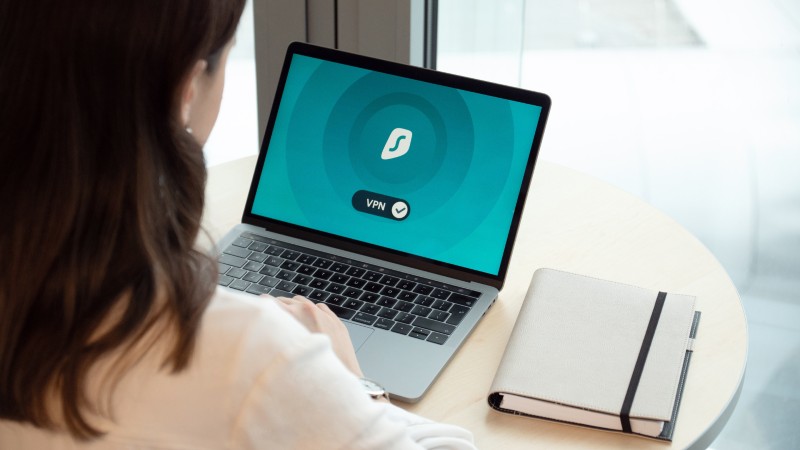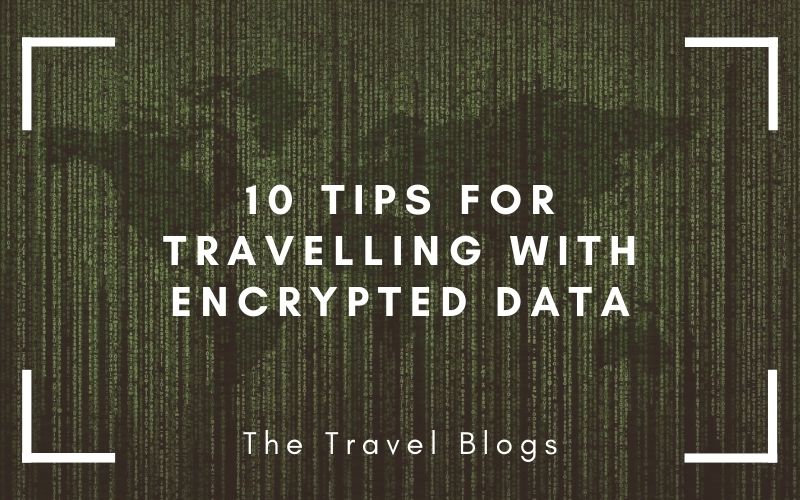If you regularly travel internationally with sensitive data on a laptop, it is a good idea to have an understanding of how international export control laws can apply to your device’s encryption software to be ready for any questions you may have.
Having your laptop or mobile device encrypted before you travel internationally can give you an extra sense of security. Whether you are carrying sensitive data, or just don’t want potential thieves to access your documents, encryption helps keep your laptop safe.
However, there are many potential problems travelling with encrypted data, including a point blank refusal of entry.
So what are the tips you need to know about encrypted laptop travel restrictions? Let are explore some:

Top tips for traveling with an encrypted laptop
1. Understand what the the Wassenaar Arrangement is
Wassenaar Arrangement is an agreement between a league of countries that allows travelers to enter their country with encrypted mobile devices or computers. The arrangement states provisions for the use of an encrypted laptop and commits you not to share or distribute the technology in the country you are visiting.
There are more than 35 countries that subscribe to the Wassenaar Arrangement. However, some countries do not fully recognize the agreement. Ukraine and Russia are good examples of countries that agree with most sections but oppose the Personal Use Exemption section.
Countries that oppose the Personal Use Exemption Clause will have specific requirements for any traveler wishing to enter their country with encrypted devices. The general rule in countries like China, Israel, Ukraine, Russia is that you have to apply for an import license from a state agency to bring to their countries encrypted gadgets.
2. Learn a bit about regulations on encrypted items
In the US, regulations are in place on encryption items, which help maintain national security and guard on matters of secrecy like those affecting trade and law enforcement. Apart from the Wassenaar Arrangement, it uses Executive Order 13026 to guide reexport and exports of encryption software.
There are many products controlled by Executive Order 13026. They include photo-optical equipment, laptops, over-radio, photoelectric communication, ammunition software, and items on the munition list. All these efforts aim to ensure the stability of national security by not allowing harmful products to enter the country.

3. Acquaint yourself with the international data security guidance
The International Data Security Guidance is a good start point for understanding issues touching on travel with laptops and other encrypted items. Harvard University Global Support Services facilitates the Havard Community in their travel plans.
You can borrow a leaf from the University Department which will help you know how to travel with encrypted laptops and related items.
Quick tips on data security:
- Harvard Global Support services recommend that you learn about the country’s IT laws to avoid running into trouble with the authorities. Also, be ready for random checks to your laptops and accounts at ports of entry.
- Get loaner devices that require no encryption such that if they hold it at the immigration department, you don’t lose critical personal information.
- Travel with fewer devices. If you pack many devices, you are most likely to raise eyebrows at the entry port.
- Create a backup before the trip and leave it at home just in case you lose your laptop at the course of travel.
- Do not use a single password for several accounts because that one password can expose tons of information about you.
- Sign up for remote tracking of your devices if you lose your laptop or phone during travel.
- Report instances in which you believe the high-risk confidential information on your laptop was compromised.
- Run an antivirus pre and post your trip to ensure you are safe at all times.
- Check the content of your data and documents to ensure they are not against the government of the country you are visiting.
4. Be ready to decrypt at border crossings
Entering the US can be a hassle because of the invasive requirements set by Homeland security. With tighter controls on immigration, the Homeland guards can ask for passwords and other social media credentials before they grant you entry to the country. The customs department has the right to confiscate devices like mobile phones and computers for examination at the port of entry.
Therefore, the best way to stay safe while visiting the US is by deleting private information on your devices. You can reinstall them when you are back in your country or after leaving the border point. Alternatively, consider loaning a laptop, which doesn’t require you to encrypt the content.
5. Consider subscribing to a virtual private network(VPN)
To stay safe while on travel, install a virtual private network on your device. VPNs mask encrypted data using a tunnel that no one can read unless they know how to decrypt. But beware that authorities can still request access for VPN logins, and you won’t deny them because doing so will have legal implications.
Despite the confidence millions have on VPN networks, there is still a loophole for vulnerability. Countries have information-sharing treaties that allow the security surveillance team in the country you are visiting to exploit your VPN to their advantage. Canada, the US, and the UK have treaties that give their security express rights to compromise VPNs.

6. Switch off devices at ports
The surest way to be safe at the port of entry is by turning off your laptop. That way, you won’t have to provide passwords for border security to access your device. You may even choose to deny them the credentials if they ask. But remember that can get trickier if they pull you aside for thorough inspection.
Note that searches at US borders are quite invasive and widespread. It is wise to be polite to the law enforcers to avoid many issues like legal battles. Also, shun the use of dummy passwords because it could lead you to more trouble.
7. Avoid Carrying External Storage Devices
While on travel, avoid processing or saving data using external storage devices. The use of USB keys and portable hard drives seem convenient, but they could easily be compromised by someone else to their advantage.
The theft and general loss of external storage devices is so common and not wise to carry them along on your travel. If you have to go with them, delete all sensitive information from these devices to ensure that strangers/intruders don’t access your documents.
8. Be vigilant
Do not allow the law enforcers at the port of entry to harass you during checks. Please make sure you note down the badge numbers and the department they come from for follow-ups. By writing the critical details, you will be better placed pursuing the legal path.
When carrying your laptop, please put it on the carry on luggage for more safety. The US advises citizens against leaving their laptops in the suitcases at the cabin more so when traveling from specific countries in Africa and the Middle East.
9. Avoid using public WiFi and terminals
Your laptop can be hacked using public WIFI at busy ports. Not all travelers or people at the port of entry have good motives. Some could be there to snoop for information, or it could be government agents gathering information about travelers.
Another thing to shun at the port of entry is the use of public machines for your work. You may lose usernames and passwords for different accounts. The public computer networks could also have keyloggers that leak your credentials, and someone can use the information to log in through your laptop.

10. Wipe out data on your laptop
It is painstaking to lose critical data to law enforcers, especially if it relates to your business. It could be your company strategies or trade secrets that could jeopardize the bottom line of your organization. The most important thing to do is create a cloud account where you can back up data to the cloud.
Once you have a cloud backup, you can proceed to delete data from your laptop. Alternatively, you can back up on an external drive that you can leave behind as you travel. The positive news is that in the US, law enforcers are only allowed to access drive data and not cloud storage.
Erase the browser history to prevent state agents from snooping on personal interests. Delete anything (it could be cookies, the cache, or temporary files on downloads) that leaks personal information. But the best way to avoid issues is by using the incognito mode to browse while on transit.
Pay special attention if travelling to these countries
The nations below have restrictions on the import (including traveling to) of encrypted devices. They also don’t recognize the”personal use exemption”.
If you plan on traveling to any of these countries with an encrypted device, you will have to apply to their specified governmental agency for an import license first:
*This list is accurate at time of publication and subject to change, it i always with to double check with the countries Minisry if you are in doubt.
- Belarus
- Burma
- China
- Hungary
- Iran
- Kazakhstan
- Moldova
- Morocco
- Russia
- Saudi Arabia
- Tunisia
- Ukraine
For further information on what you need to do to apply, you can contact the US State Department.

Encrypted laptop travel restrictions: final thoughts
To conclude, we can say that traveling with an encrypted laptop may not always be an easy affair if you aren’t prepared for the consequences.
However, the tips presented in this article make you better prepared for your trip by giving you tips and resources on the encrypted laptop travel restrictions.
Do not forget to go through the Wassenaar Arrangement, which applies to most countries and guides you when traveling with a laptop. There is also the Executive Order 13026 that governs the export and report of encrypted software.
I guess my biggest tip would be, if you are a general computer user and don’t handle sensitive data, encryption may be more hassle than it is worth during travel.
